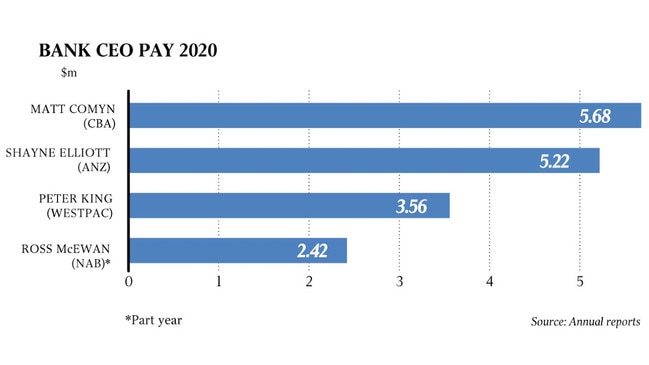APRA compromises on draft remuneration standard
The prudential regulator has compromised on some key aspects of its long-awaited, draft standard on remuneration for bankers.

The prudential regulator has compromised on some key aspects of its long-awaited, draft standard on remuneration, proposing shorter deferral periods and a more flexible, approach to the 50 per cent cap on financial measures for variable pay.
Australian Prudential Regulation Authority deputy chairman John Lonsdale said the new framework, which addressed the relevant recommendations from the financial services royal commission, was more principles-based but required greater transparency.
“(It) is deliberately principles-based to provide boards with flexibility to tailor remuneration frameworks to their entities,” he said.
“However, with this flexibility comes an obligation that boards actively oversee remuneration policies for employees and ensure that there are appropriate consequences when people fail to meet expectations.
“The standard is designed to promote effective risk management that aligns the interests of customers, shareholders and the broader community, to deliver high performance in a sustainable manner.”
Mr Lonsdale said that, once implemented, APRA expected the standard to deliver stronger incentives for individuals to manage non-financial risk, appropriate financial consequences when significant risk incidents occurred, as well as improved transparency to drive stronger board accountability for remuneration outcomes.
In its response paper to 76 written submissions across five industries, APRA said an appropriate remuneration framework was an important component of a resilient financial system.
Strengthening prudential requirements for remuneration was one of the regulator’s four key priorities, falling within the objective to enhance governance, culture, remuneration and accountability in all regulated entities.
Remuneration shortcomings had been highlighted in APRA’s supervisory findings, as well as the financial crisis and the royal commission, with senior executives rewarded despite failures in risk management and poor community outcomes.

APRA said incentive structures had to be broadened from a sole focus on short-term financial performance to support prudent, long-term growth outcomes.
Under the key revisions, the 50 per cent proposed cap on financial measures for variable remuneration will be replaced by a requirement for “material weight”, combined with a risk and conduct modifier which can potentially reduce variable remuneration to zero.
APRA resisted a strong lobbying campaign from investors to remove non-financial measures altogether, and will issue a practice guide next year on the material weight issue.
The guide will expand on measures such as good customer outcomes, effective risk management and workplace culture.
Ultimately, the entity’s board will decide on the measures but they will have to be implemented, transparent and include appropriate consequences for risk failures.
Deferral periods for variable pay will be reduced from seven to six years for chief executive, from six to five years for senior managers, and from six to four years for “highly-paid, material risk takers”.
While some entities, such as Commonwealth Bank and Macquarie Group, already have long deferral arrangements, APRA resisted a campaign to restore deferral periods to the old standard of four years.
APRA said the remuneration requirements for smaller entities had been streamlined to minimise their regulatory burden.
Under the revised standard, they will not be subject to a number of elements impacting variable remuneration, including material weight for non-financial measures, a risk and conduct modifier, minimum deferral periods and clawback.
To further ease compliance costs, they will not have to conduct annual compliance checks or tri-annual effectiveness reviews of their remuneration frameworks.
The consultation period for the draft standard will close on February 12 next year, with finalisation scheduled for mid-2021.
Implementation will occur at the start of January 2023 for large banks, and on July 1, 2023 for large insurers and superannuation funds.
Smaller insurers and super funds will be covered by the start of 2024.





To join the conversation, please log in. Don't have an account? Register
Join the conversation, you are commenting as Logout